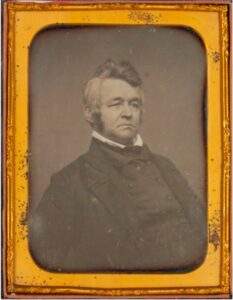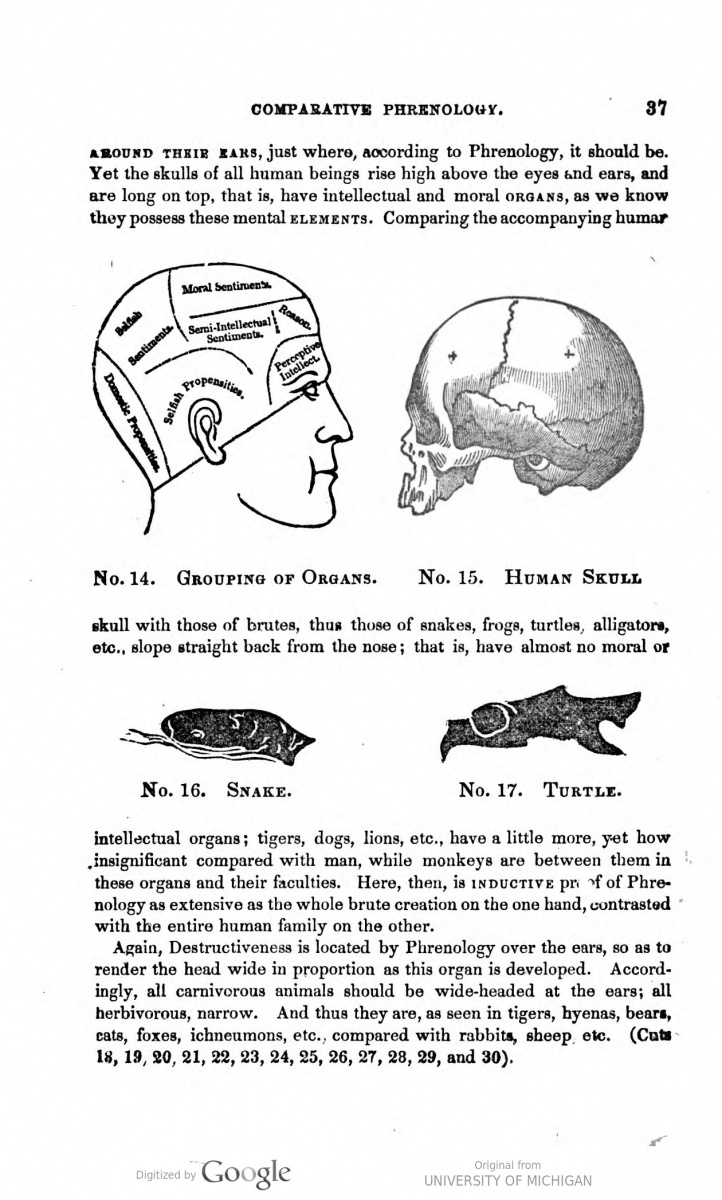
Bowdoin’s Special Collections & Archives recently received the medical library of Dr. John Hubbard (1794-1869), a prominent physician, governor of Maine representing the Democratic Party from 1850 to 1853, and father to Thomas Hubbard, Bowdoin class of 1857 and namesake of Hubbard Hall. The collection is a gift of the Hubbard Free Library in Hallowell, Maine, where Hubbard practiced medicine for nearly 40 years.
Containing more than 260 volumes, Hubbard’s library offers a window into the life and work of a 19th century physician operating a solo practice in a bustling town. The books in his collection range from the very practical—anatomical and surgical manuals—to philosophical ones about the classification of epidemical diseases. Some of the oldest (1793) and most recent (1866) imprints concern women’s reproductive health, as do numerous others, pointing to the frequency with which Hubbard attended to obstetrical work. His library suggests he also made every effort to keep up with the most recent developments in his field. Hubbard subscribed to the American Journal of Medical Sciences and continued to acquire new publications throughout his life, including those on the burgeoning use of ether, magnetism, and electricity in medical care.
Upon his death, his medical office was sealed, and it remained a virtual time capsule for more than a century. His books were eventually transferred to the Hubbard Free Library in Hallowell, but never cataloged. In 2019, the trustees of the library voted to transfer them to Bowdoin College, partially in recognition of the Hubbard family’s strong connections with the College but also as a means of recognizing Bowdoin’s important role in Maine medicine.
O.S. and L.N. Fowler’s "The Illustrated Self-Instructor in Phrenology and Physiology" (New York: Fowler & Wells, 1849).
The brothers Orson Squire Fowler (1809-1887) and Lorenzo Niles Fowler (1811-1896) were among the most influential leaders of the phrenology movement in America during the 19th century. They ran a phrenological office in New York City, wrote and lectured on phrenology, preservation of health, popular education and social reform, and with their business partner Samuel Roberts Wells (1820-1875), published many seminal works on the movement, including The Illustrated Self-Instructor. First published in 1840 and released in 48 subsequent editions, the popular work proclaimed: “Self-knowledge, by teaching the laws and conditions of life and health, becomes the most efficacious means of prolonging the former and increasing the latter.” While simultaneously asserting the inferiority of African Americans and Jews, the Fowlers promoted liberal causes and social reform movements, including abolitionism, women’s rights, temperance, vegetarianism, and sex education. The brothers examined a wide variety of famous individuals of the day—including John Greenleaf Whittier, Clara Barton, Mark Twain, and Walt Whitman, and were crucial in the original publication of the latter’s Leaves of Grass. This copy, from the library of Gov. John Hubbard includes a “chart of the character” of Hubbard completed by Lorenzo Fowler in Eastport, Maine, on November 2, 1858.
